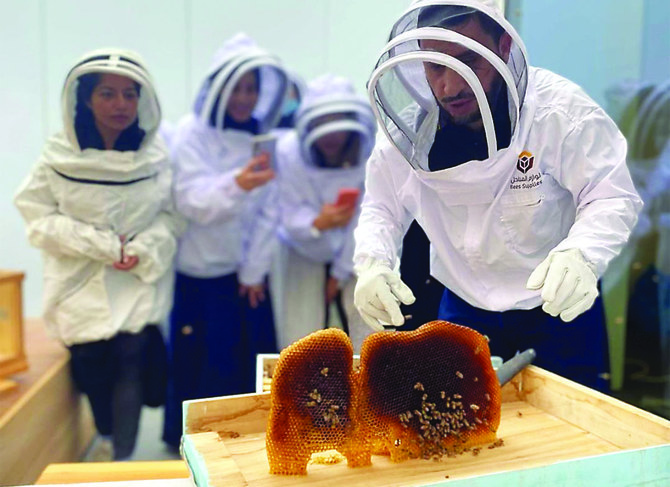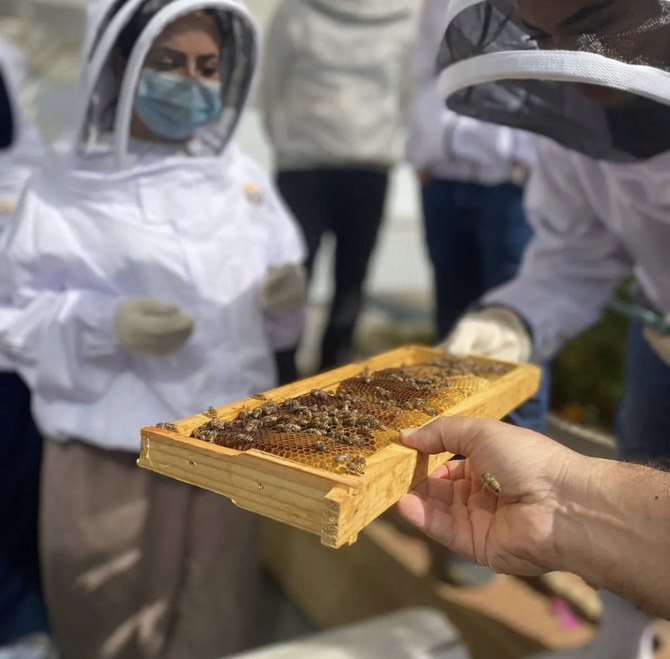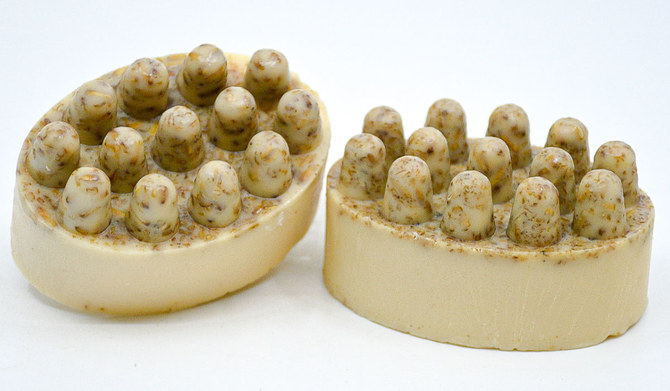JEDDAH: Saudi couple Ahmed Badghaish and Nada Khaled Malaika have been working hand-in-hand together as beekeepers for two decades.
Over the years, they have transformed a modest business into a thriving apiary named Bee Ways that houses 1,200 beehives and is registered under the Ministry of Environment, Water and Agriculture, and licensed by the Ministry of Commerce for beekeeping and honey production. They have gained international recognition for the exceptional quality of their honey and honeycomb-based products.
Bee Ways won the gold and silver awards at the London International Honey Quality Competition for two different honeys in 2022, and the Great Taste Global Gold prize for their Talh honey at the London Honey Awards in 2021.
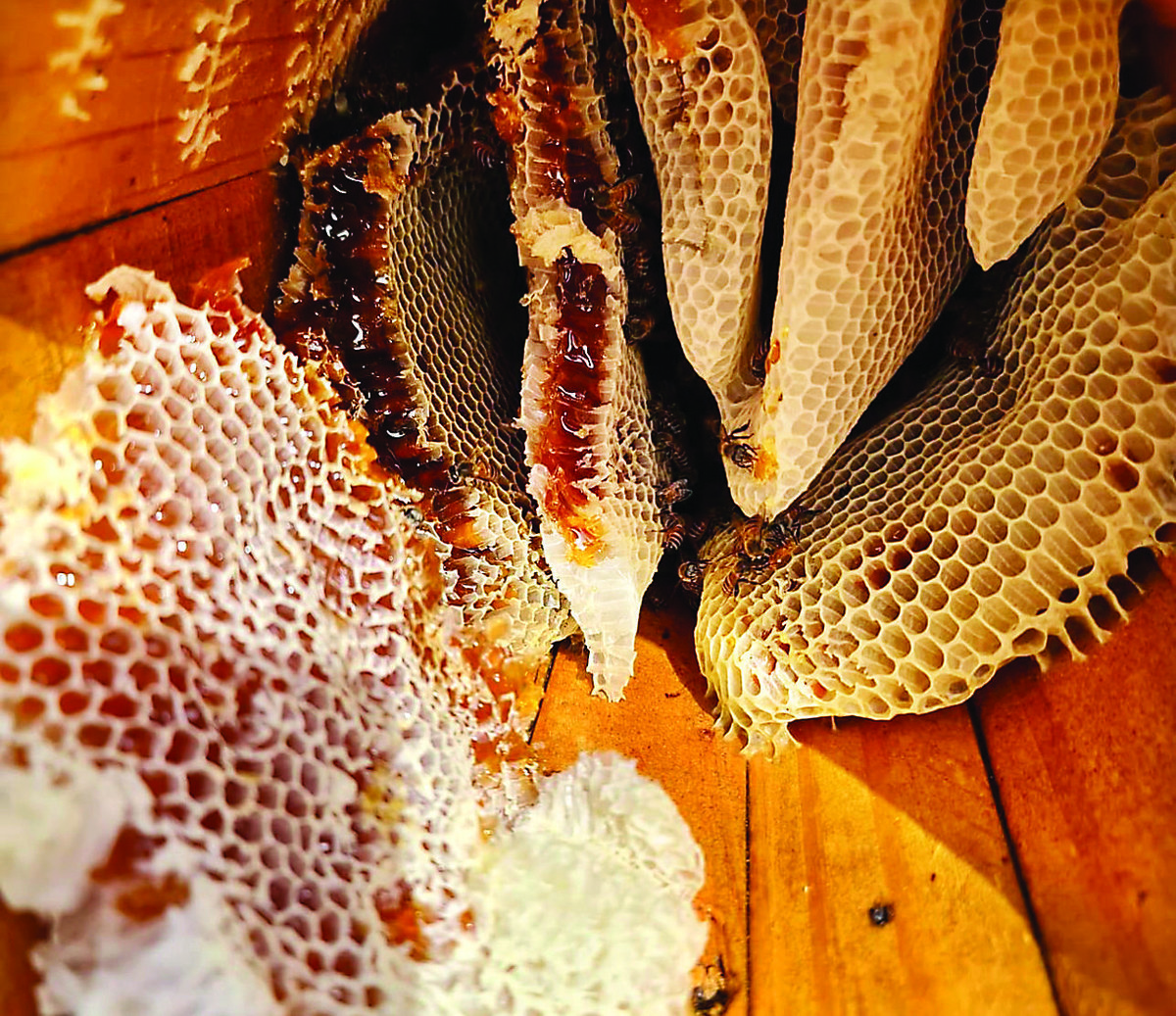
Bee Ways is run by Saudi couple Ahmed Badghaish and Nada Khaled Malaika. (Instagram/beewaysaudi)
Commenting on their roles within Bee Ways, Malaika said: “My husband (Badghaish) oversees the beehive in terms of administration and operation, while I work on the transformational products.”
To work as beekeepers as a couple is to embark on a voyage of shared passion and purpose. “We complement each other,” she said.
HIGHLIGHTS
• Bee Ways follows the nomadic beekeeping method that takes the bees all over the Kingdom in search of the best nectar sources.
• Their honey has won awards at the London International Honey Quality Competition in 2022 and at the London Honey Awards in 2021.
Hailing from Jeddah, Badghaish and Malaika began their beekeeping journey with nothing more than a passion for nature and an innate curiosity about the world of bees.
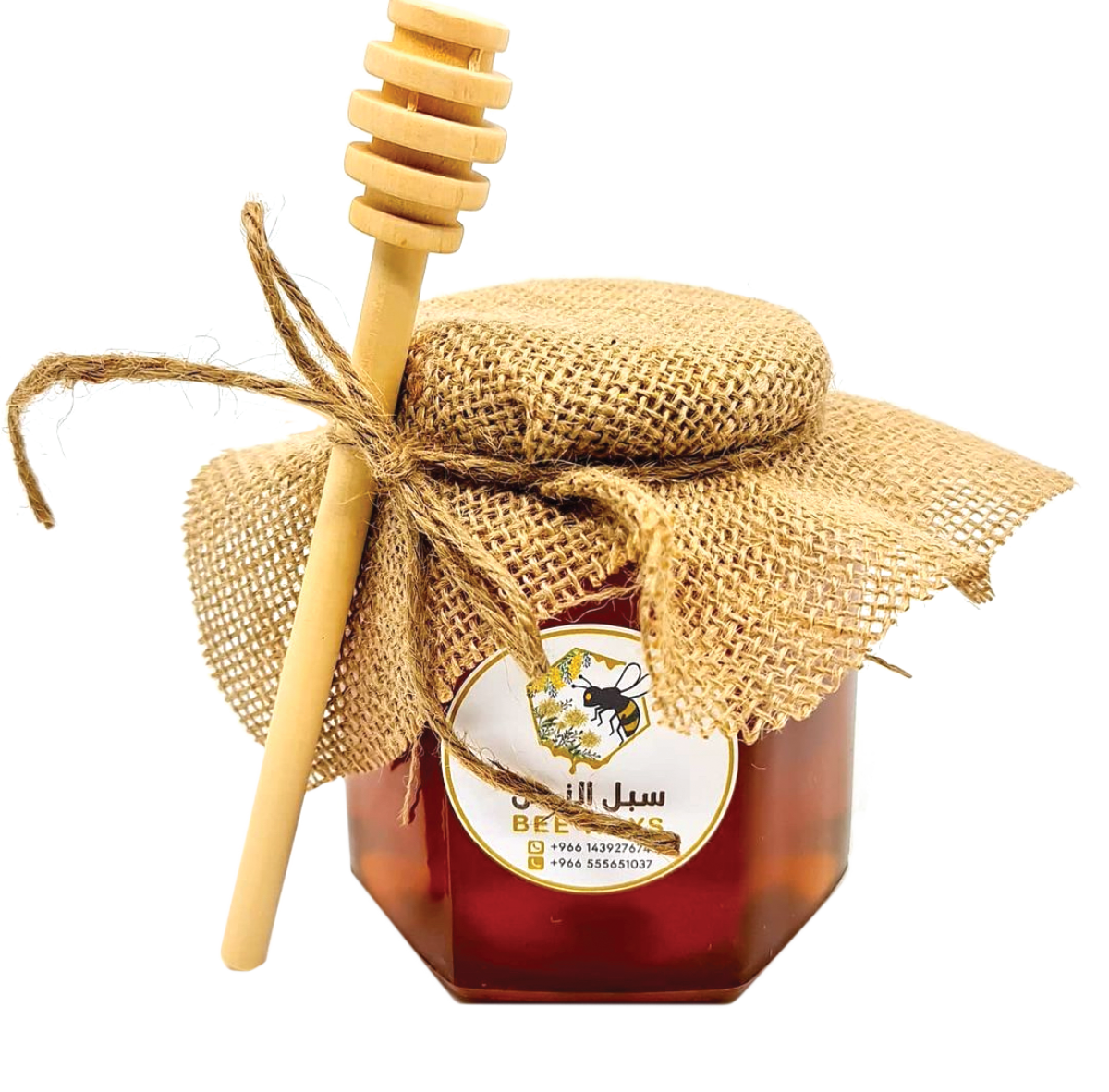
Badghaish and Malaika bring an unwavering commitment to sustainable practices and bee welfare to the local apiary industry. (Supplied)
“Beekeeping started as a hobby and grew into a full-time profession,” Malaika said. “We acquired more knowledge by engaging in regular practice, interacting with seasoned individuals, and extensively reading about this field.
“We had the opportunity to learn from experts both within the Kingdom and globally. Thanks to electronic channels and specialized beekeeping accounts, we are continually exposed to the finest practices and experiences available.”
To pass on their knowledge, they conduct training workshops in Jeddah and around the Kingdom.
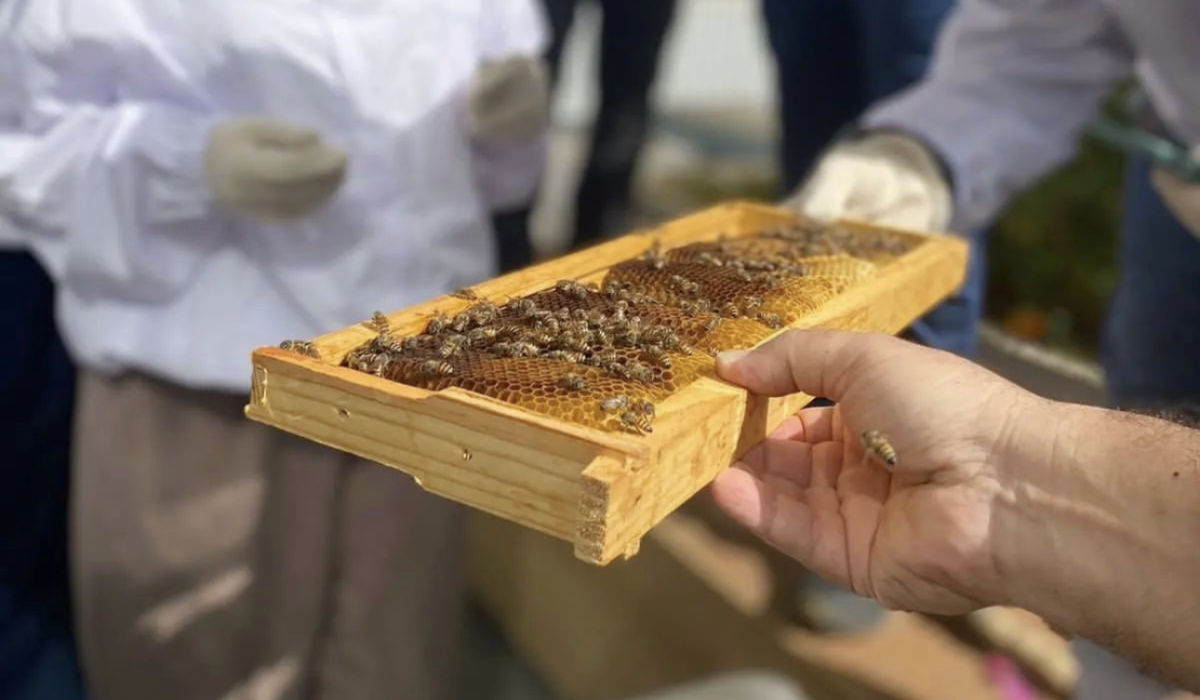
Bee Ways follows the nomadic beekeeping method that takes the bees all over the country’s greenest pastures. (Supplied)
“We have conducted several workshops, including an introduction to beekeeping and honey production. We have also held a practical workshop on beeswax manufacturing and soap making as well.”
They have held workshops at Hayy Jameel in Jeddah, such as the “This is Edible Gold: Advanced Beekeeping” workshop last year that taught participants how to construct beehives and included step-by-step instructions on urban beekeeping.
Many people believe that beekeeping is only about producing honey, but there are many other products that can be derived from the beehive.
Nada Khaled Malaika, Bee Ways cofounder
Badghaish and Malaika bring an unwavering commitment to sustainable practices and bee welfare to the local apiary industry.
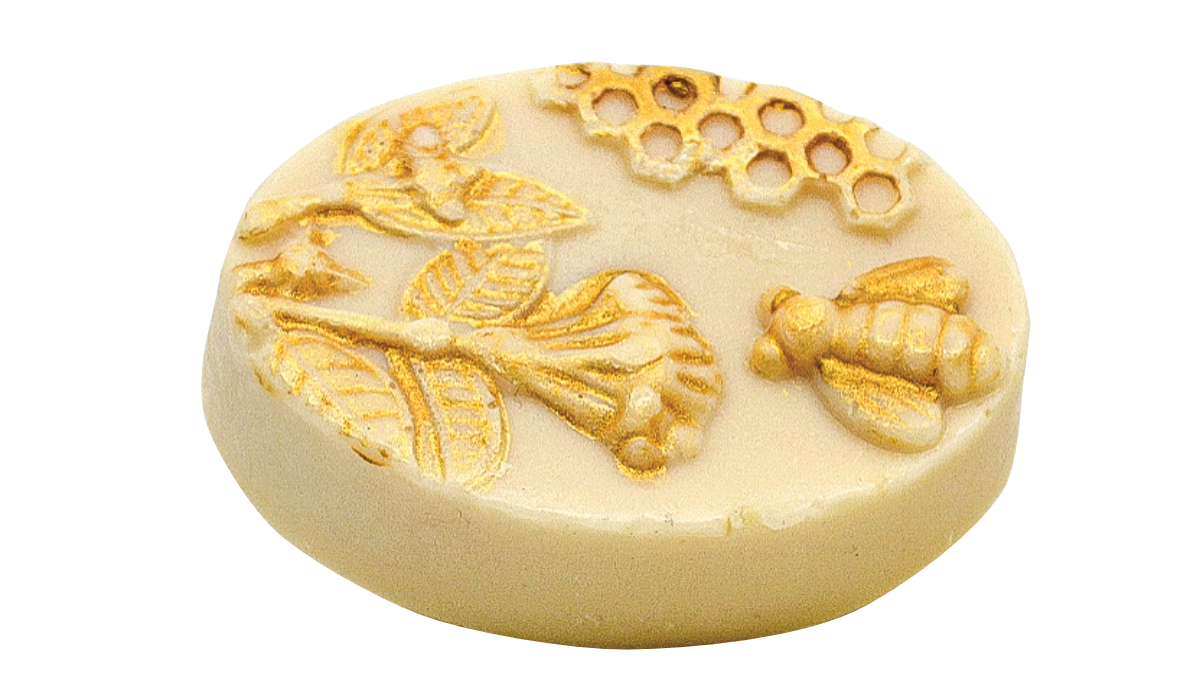
Bee Ways skin care range is made with bee by-products and other natural ingredients like olive and almond oil, oats, pollen, and pumpkin.
Together, they tend to the hives, ensuring their inhabitants’ well-being, health, and happiness. “My husband filtrates the honey and extracts the wax, and I take care of dealing with great quantities of honey,” Malaika added.
They craft sanctuaries of safety and sustenance, providing the bees with an abundant array of blossoms and encouraging nature’s collaboration.
They take pride in their meticulous operation, ensuring that every step of the honey production process is executed with utmost care and precision by strategically placing their beehives amidst fertile landscapes with floral diversity.
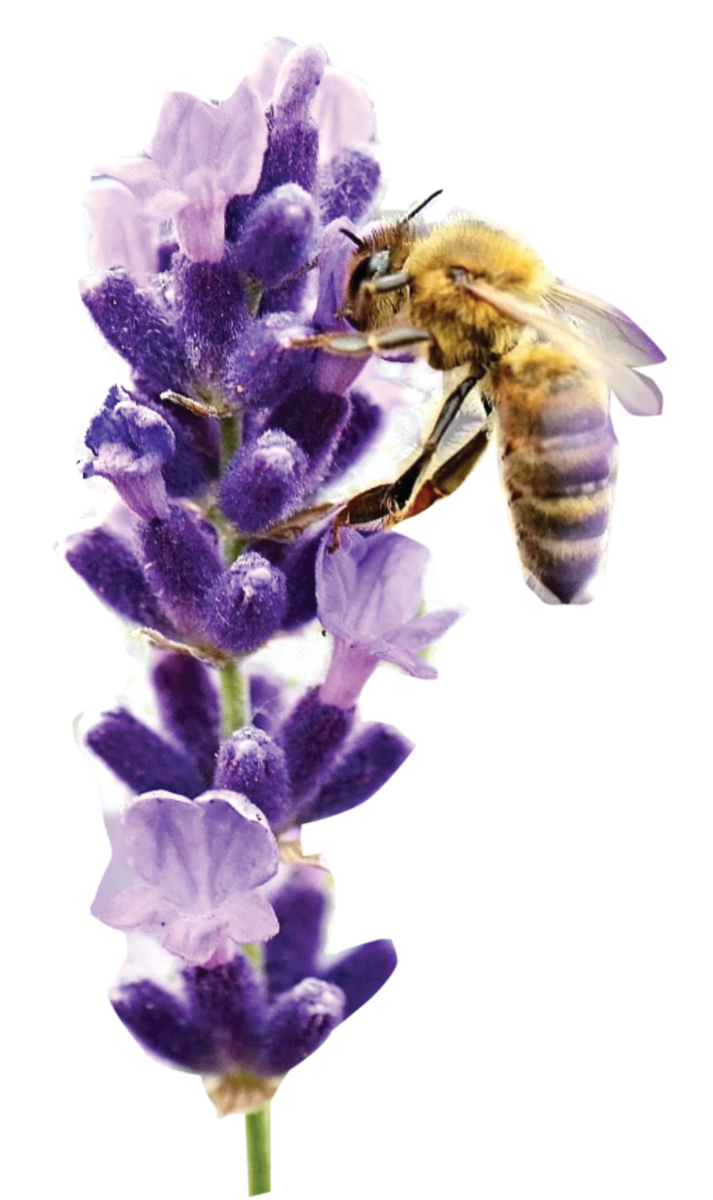
Producing 1 kg of honey requires the bees to visit approximately 4 million flowers. (Supplied)
Speaking on the importance of providing this aid to bees, Malaika added: “Given the immense expanse of our cherished Kingdom and the abundance of flower varieties gracing its pristine landscapes, it poses a considerable challenge for bees to journey thousands of kilometers unaccompanied in their quest for nectar. Therefore, we follow the seasons by traveling with our beehives around the Kingdom in search of a better environment.”
Bee Ways follows the nomadic beekeeping method that takes the bees all over the country’s greenest pastures. From the enchanting fields of lavender in Al-Jouf in the north and the jasmine flowers of Jazan to the humble date palm groves in Madinah, Qassim, and Al-Ahsa, their bees have access to a wide array of nectar sources, resulting in honey that boasts a distinctive, rich flavor.
The name of their apiary brand, Bee Ways, is a nod to their travels around the Kingdom with their bees, passing through deserts, mountainous regions, and valley roads.
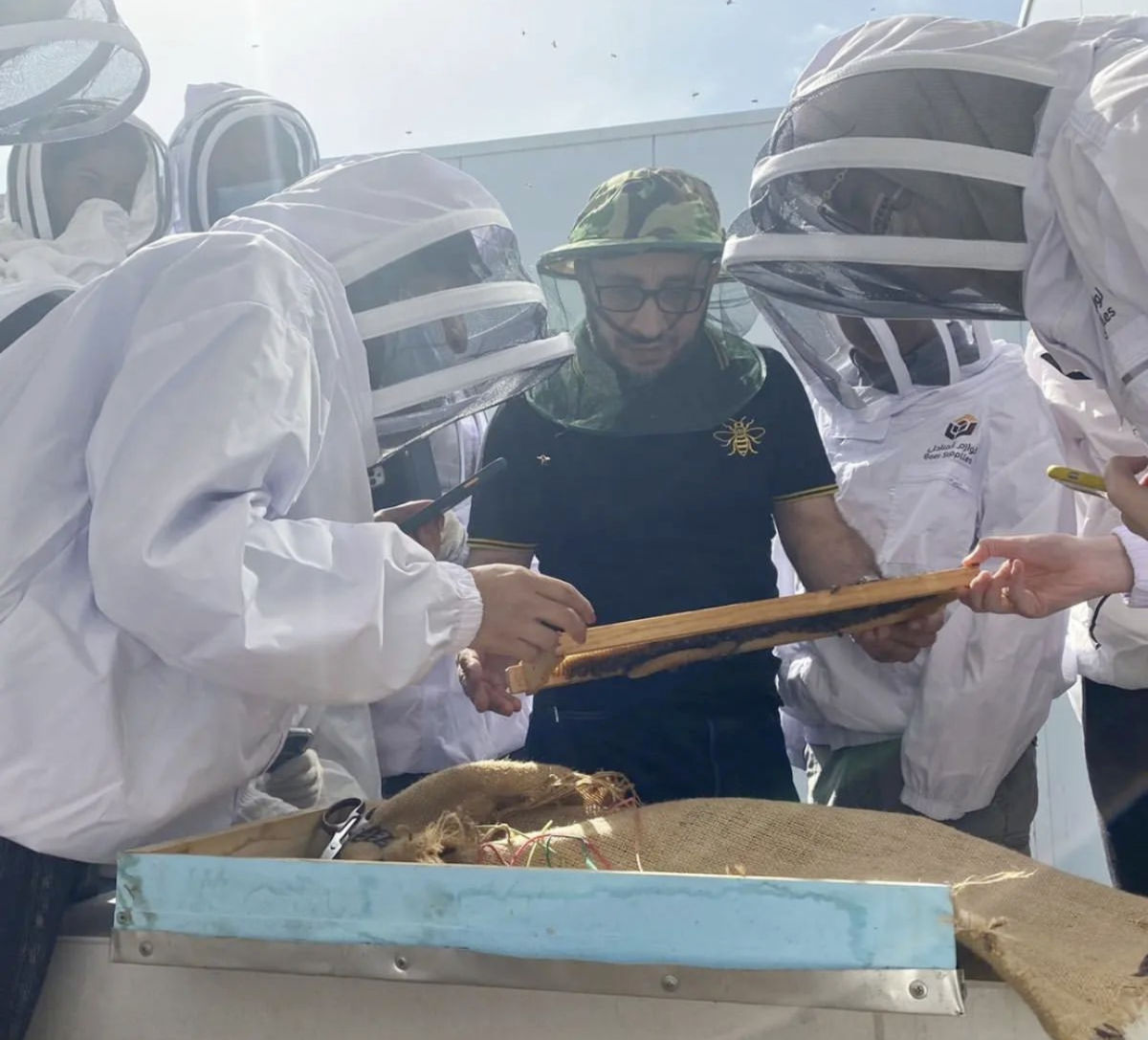
Ahmed Badgahish while instructing a group of beekeeping inthusiasts during a workshop in Jeddah. (Instagram @beewaysaudi)
“These ways and routes were meant to help bees reach the sources of nectar through us. Producing 1 kg of honey requires the bees to visit approximately 4 million flowers. Therefore, forests and farms are necessary to produce commercial quantities of monofloral honey. However, we cultivate clover and pumpkin on our farm in Al-Jouf,” Malaika explained. “We produce approximately three tons of honey every year.”
They have registered their Asiri Sidr honey and Samra Al-Hijaz honey through the Ministry of Culture in the Slow Food International Organization category as a distinctive local product from Saudi Arabia.
Explaining the true potential of beekeeping, Malaika added: “Many people believe that beekeeping is only about producing honey, but there are many other products that can be derived from the beehive. These products can create high-value-added items.
“In addition to producing natural honey from different parts of the Kingdom, we utilize all the bee by-products.”
Sustainability is at the core of Bee Ways, which also offers eco-friendly beeswax products including food packaging wax which can be used as an alternative to aluminum and plastic, which may degrade and release toxic compounds once mixed with food.
With over 20 years of experience, the Bee Ways duo have built a deep understanding of the healing properties of honey, and have tapped into the burgeoning market of skin care products with their own diverse range that utilizes leftover honey and honeycomb.
“We offer more than fifty different products. These include local honey in various types, soaps, creams made from bee products, and candles,” Malaika said.
Other natural ingredients to their skincare products and soaps include olive and almond oil, goat milk, outs, shea, pollen, and pumpkin. They also meticulously infuse their concoctions with organic plant extracts, essential oils, and exotic herbs sourced from the diverse nature of the Kingdom.
“Bee products are considered therapeutic and (are) natural remedies for those who know how to benefit from them. Beeswax is used to make creams, moisturizers, and scented candles as well. Pollen grains are also beneficial for the skin and body in general,” Malaika added.


